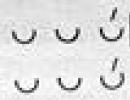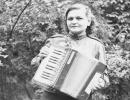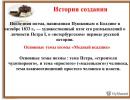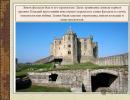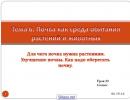Топик по английскому языку "Political System of Great Britain - Политическая система Великобритании". The state system of Great Britain - Государственный устрой Великобритании Законодательная система великобритании на английском языке
The United Kingdom of Great Britain and Northern Ireland is a constitutional monarchy.
The power of Queen Elizabeth II is not absolute. It is limited by Parliament. The legislative body, Parliament, consists of two chambers: the House of Lords and the House of Commons.
The executive body consists of the central Government - that is the Prime Minister and the Cabinet of Ministers, who are responsible for initiating and directing the national policy.
The judiciary body is independent of both the legislative and the executive ones.
The Government derives its authority from the elected House of Commons. General elections, for all seats in the House of Commons, must be held at least every five years. The Government is normally formed by the political party which is supported by the majority in the House of Commons. The leader of the party is appointed the Prime Minister by the Queen and chooses a team of ministers. The second largest party becomes the Official Opposition with its own leader and the “Shadow Cabinet”.
The House of Lords is a hereditary chamber.
In Great Britain there is no written constitution, only customs and traditions.
Политическая система Великобритании
Соединенное Королевство Великобритании и Северной Ирландии является конституционной монархией.
Власть королевы, Елизаветы II, не является абсолютной. Она ограничивается парламентом. Законодательный орган, парламент, состоит из двух палат: палаты лордов и палаты общин.
Исполнительный орган состоит из центрального правительства, - то есть премьер-министра и кабинета министров, которые несут ответственность за принятие решений и проведение национальной политики.
Судебный орган является независимым как от законодательной, так и исполнительной власти.
Правительство получает свои полномочия от избранной Палаты Общин. Всеобщие выборы в Палату Общин должны проводиться не реже одного раза в пять лет. Правительство, как правило, формируется политической партией, которая поддерживается большинством в Палате Общин. Лидер этой партии назначается королевой премьер-министром и набирает команду министров. Вторая крупнейшая партия становится официальной оппозицией со своим лидером и "теневым кабинетом".
Членство в палате лордов является наследственным.
В Великобритании нет официальной конституции, только обычаи и традиции.
Фото английской королевы Елизаветы II сделано в Лондоне, 24 октября 2014 года при посещении Музея Естествознания.
(LONDON, ENGLAND — October 24, 2014. Photo by Chris Jackson)
ЗАПОМНИТЕ
- The UK is a constitutional monarchy and a parliamentary democracy.
- The monarch is the head of the state (Queen Elizabeth the Second)
She doesn’t rule the country, has ceremonial function; signs bills.
- The prime-minister is the head of the government.
He is the leader of the party with the majority seats in the House of Commons.
- Parliament consists of two chambers or houses:
the House of Lords
the House of CommonsThe House of Lords consists of 651 MPs (elected). It makes laws.
The House of Commons consists of 1203 non-elected peers. It can delay bills and ask for rewriting certain parts.
- The head of the both Houses of Parliament is the Queen. She is also the head of the executive branch.
Mind the articles:
- the Houses of Parliament
- the House of Lords
- the House of Commons
- the government
- But__ Parliament
* * *
Information to know about the Political System of the UK
- The legislative power belongs to Parliament. It makes laws.
- The House of Commons is more powerful: it decides national policy.
- The House of Lords has little political importance.
- The executive power belongs to the Government. It executes laws (puts them into effect.)
- Real power in the UK belongs to Parliament and the Government.
- The term “constitutional monarchy” means that GB is governed by Parliament, and the monarch is Head of State.
- The Queen has very little power. She has to put her signature on new laws even if she doesn’t like them.
- Her most important function is ceremonial. The Queen is a symbol of Britain’s long history and tradition. On great occasions she is driven through the streets in a golden carriage, guarded by soldiers.
- She represents Britain when she meets other heads of state. Every autumn she opens the Parliament. Every year she speaks on TV on Christmas day. She opens new hospitals, theatres and museums. After disasters she send messages to the families of the victims.
- The Queen of GB is also the Head of Commonwealth and also the Queen of Canada, Australia, New Zealand, etc. The Commonwealth is an association of former members of British Empire (British colonies) and Britain, which was formed in 1949.
Questions:
- What functions has Parliament ?
- What function has the Government?
- What does the Queen do?
- What does the term constitutional monarchy means?
- Why does the House of Lords have little political importance?
- What do the letters MP stand for?
- Is the Queen of the UK also the queen of some other countries?
- Do you think the idea of monarchy is out-of date?
The British constitution is often called the unwritten constitution because, unlike the constitutions of most other countries it is not a single documents, but a set of laws.
The first British constitution was Magna Carta which the King John was forced to accept in 1215. Its fundamental principles formed the base of the present one.
Some information about Royal family.
1. The family name of the present royal family is Windsor.*
2. Queen Elizabeth II became Queen in 1952.
3. Her husband’s name is Prince Philip.
4. She has 4 children (Prince Charles, Princess Anne, Prince Andrew, Prince Edward)
5. Her favourite animals are dogs.
6. The British monarchs are crowned in Westminster Abbey.
7. There are 600 rooms in Buckingham Palace.
8. Queen Victoria reigned for the longest period.* This may sound very British, but the royal family ancestors were German. The present Queen’s great-great-grand mother, Queen Victoria (1819-1910) was born in Britain, but her mother and her husband were both German.
Extra information about the Political System of the UK
- Members of the House of Commons are elected by the voters of 650 constituencies (избирательные округа): each constituency has an elected MP.
- The party, supported by the majority in the House of Commons, forms the government.
- The second large party forms the Opposition (the Shadow cabinet).
- The two main parties are the conservative party (the Tory party) and the labour party (консерваторы и лейбористы).
- Since the eighteenth century, the two parties have sat facing each other in the House of Commons.
- There are some other parties: the Liberal Party, the Party of Liberal Democrats, the Social Democratic Party, the Scottish National Party, the Welsh Nationalist Party, the Communist Party of Britain, the Communist Party of Great Britain.
- The present Prime-Minister is Theresa May (the leader of Conservative Party).

- The Prime-Minister lives at 10, Downing Street.
Check Yourself what you remember on the political system of the UK
- The letters ‘MP’ means the ______________________.
- Parliament is ___________two chambers:______________________.
- The members of the __________________are not elected.
- The UK is divided into constituencies (избирательные округа) that have their representatives in the ___________________.
- In the UK ___________________is held every four or five years.
- The party which wins the Majority of seats in the General Election forms the ____________.
- The leader of the winning party becomes the________________________
- The members of the party of Parliament that didn’t win the election form the_____________ to the Government.
The United Kingdom of Great Britain and Northern Ireland is a constitutional monarchy. It means that the sovereign reigns but does not rule.
Britain does not have a written constitution, but a set of laws.
Parliament is the most important authority in Britain. Technically Parliament is made up of three parts: the Monarch, the House of Lords; and the House of Commons. In reality the House of Commons is the only one of the three which has true power.
The monarch serves formally as head of state. But the monarch is expected to be politically neutral and should not make political decisions.
The present sovereign is Queen Elizabeth II. She was crowned in Westminster Abbey in 1953.
The House of Commons consists of Members of Parliament. There are 650 of them in the House of Commons. They are elected by secret ballot. General elections are held every five years. The country is divided into 650 constituencies. All citizens, aged 18 and registered in a constituency, have the right to vote. But voting is not compulsory in Britain. Only persons convicted of corrupt and certain mentally ill patients don"t take part in voting.
There are few political parties in Britain thanks to the British electoral system. The main ones are: the Conservative Party, the Labour Party and the Liberal / Social Democratic Alliance.
Each political party puts up one candidate for each constituency. The one who wins the most votes is elected MP for that area.
The party which wins the most seats in Parliament forms the Government. Its leader becomes the Prime Minister. His first job is to choose his Cabinet. The Prime Minister usually takes policy decisions with the agreement of the Cabinet.
The functions of the House of Commons are legislation and scrutiny of government activities. The House of Commons is presided over by the Speaker. The Speaker is appointed by the Government.
The House of Lords comprises about 1,200 peers. It is presided by the Lord Chancellor. The House of Lords has no real power. It acts rather as an advisory council.
It"s in the House of Commons that new bills are introduced and debated. If the majority of the members are in favour of a bill, it goes to the House of Lords to be debated. The House of Lords has the right to reject a new bill twice.
But after two rejections they are obliged to accept it. And finally a bill goes to the monarch to be signed. Only then it becomes law.
Parliament is responsible for British national policy. Local governments are responsible for organizing of education, police and many others.
Перевод топика: Политическая система Великобритании
Объединенное Королевство Великобритании и Северной Ирландии является конституционной монархией. Это значит, что монарх является главой государства, но не управляет им.
В Британии нет написанной конституции, но есть свод законов.
Парламент — главный государственный орган Британии. Он состоит из трех частей: Монарх, Палата Лордов и Палата Общин. Палата Общин — фактически единственный государственный орган, обладающий реальной властью.
Монарх формально является главой государства. Монарх должен быть политически нейтрален и не должен принимать политических решений.
В настоящее время королева Елизавета II. Она была коронована в Вестминстерском аббатстве в 1953 г.
Палата Общин состоит из парламентариев. Их 650. Они избираются тайным голосованием. Всеобщие выборы проходят каждые пять лет. Страна делится на 650 избирательных округов. Все граждане, достигшие возраста 18 лет, регистрируются в избирательном округе и имеют избирательные права. Но голосование в Британии не обязательно. Преступники и душевно больные не принимают участия в голосований.
Благодаря британской избирательной системе в Британии существует мало политических партий. Основные это консервативная партия, лейбористская партия и либерально-социал-демократический альянс.
Каждая политическая партия выдвигает одного кандидата от каждого избирательного округа. Тот, кто наберет большинство голосов, становится членом парламента от этого округа.
Партия, которая получает большинство мест в парламенте, формирует правительство. Его лидер становится премьер-министром. Его главная задача — сформировать Кабинет министров. Премьер-министр обычно принимает политические решения с согласия Кабинета.
Функции Палаты Общин — законотворчество и проверка деятельности правительства. Палату Общин возглавляет Спикер. Спикера назначает правительство.
В Палате Лордов около 1200 пэров. Председательствует Лорд-канцлер. У палаты Лордов нет фактической власти. Она служит скорее консультативным советом.
Именно в Палате Общин представляются и обсуждаются новые законопроекты. Если большинство членов палаты за принятие законопроекта, его направляют в Палату Лордов на обсуждение. Палата Лордов имеет право дважды отклонить новый законопроект.
Но после двух отклонений она обязана принять его. Для окончательного подтверждения законопроект направляют монарху, который подписывает его. Только после этого законопроект становится законом.
Парламент отвечает за британскую национальную политику. Муниципальные правительства отвечают за организацию образования, полиции и других.
Political System of Great Britain (2)
The United Kingdom of Great Britain and Northern Ireland is a constitutional monarchy. It means that the sovereign reigns but does not rule.
Britain does not have a written constitution, but a set of laws.
Parliament is the most important authority in Britain. Technically Parliament is made up of three parts: the Monarch, the House of Lords; and the House of Commons. In reality the House of Commons is the only one of the three which has true power.
The monarch serves formally as head of state. But the monarch is expected to be politically neutral and should not make political decisions.
The present sovereign is Queen Elizabeth II. She was crowned in Westminster Abbey in 1953.
The House of Commons consists of Members of Parliament. There are 650 of them in the House of Commons. They are elected by secret ballot. General elections are held every five years. The country is divided into 650 constituencies. All citizens, aged 18 and registered in a constituency, have the right to vote. But voting is not compulsory in Britain. Only persons convicted of corrupt and certain mentally ill patients don"t take part in voting.
There are few political parties in Britain thanks to the British electoral system. The main ones are: the Conservative Party, the Labour Party and the Liberal / Social Democratic Alliance.
Each political party puts up one candidate for each constituency. The one who wins the most votes is elected MP for that area.
The party which wins the most seats in Parliament forms the Government. Its leader becomes the Prime Minister. His first job is to choose his Cabinet. The Prime Minister usually takes policy decisions with the agreement of the Cabinet.
The functions of the House of Commons are legislation and scrutiny of government activities. The House of Commons is presided over by the Speaker. The Speaker is appointed by the Government.
The House of
Lords comprises about 1,200 peers. It is presided by the Lord
Chancellor. The House of Lords has no real power. It acts rather
as an advisory council.
It"s in the House of Commons that new bills are introduced and
debated. If the majority of the members are in favour of a bill,
it goes to the House of Lords to be debated. The House of Lords
has the right to reject a new bill twice.
But after two rejections they are obliged to accept it. And finally a bill goes to the monarch to be signed. Only then it becomes law.
Parliament is responsible for British national policy. Local governments are responsible for organizing of education, police and many others.
Политическая система Великобритании (2 )
Объединенное Королевство Великобритании и Северной Ирландии является конституционной монархией. Это значит, что монарх является главой государства, но не управляет им.
В Британии нет написанной конституции, но есть свод законов.
Парламент - главный государственный орган Британии. Он состоит из трех частей: Монарх, Палата Лордов и Палата Общин. Палата Общин - фактически единственный государственный орган, обладающий реальной властью.
Монарх формально является главой государства. Монарх должен быть политически нейтрален и не должен принимать политических решений.
В настоящее время королева Елизавета II. Она была коронована в Вестминстерском аббатстве в 1953 г.
Палата Общин состоит из парламентариев. Их 650. Они избираются тайным голосованием. Всеобщие выборы проходят каждые пять лет. Страна делится на 650 избирательных округов. Все граждане, достигшие возраста 18 лет, регистрируются в избирательном округе и имеют избирательные права. Но голосование в Британии не обязательно. Преступники и душевно больные не принимают участия в голосований.
Благодаря британской избирательной системе в Британии существует мало политических партий. Основные это консервативная партия, лейбористская партия и либерально-социал-демократический альянс.
Каждая политическая партия выдвигает одного кандидата от каждого избирательного округа. Тот, кто наберет большинство голосов, становится членом парламента от этого округа.
Партия, которая получает большинство мест в парламенте, формирует правительство. Его лидер становится премьер-министром. Его главная задача - сформировать Кабинет министров. Премьер-министр обычно принимает политические решения с согласия Кабинета.
Функции Палаты Общин - законотворчество и проверка деятельности правительства. Палату Общин возглавляет Спикер. Спикера назначает правительство.
В Палате Лордов около 1200 пэров. Председательствует Лорд-канцлер. У палаты Лордов нет фактической власти. Она служит скорее консультативным советом.
Именно в Палате Общин представляются и обсуждаются новые законопроекты. Если большинство членов палаты за принятие законопроекта, его направляют в Палату Лордов на обсуждение. Палата Лордов имеет право дважды отклонить новый законопроект.
Но после двух отклонений она обязана принять его. Для окончательного подтверждения законопроект направляют монарху, который подписывает его. Только после этого законопроект становится законом.
Парламент отвечает за британскую
национальную политику. Муниципальные правительства отвечают за
организацию образования, полиции и других.
The state system of Great Britain - Государственный устрой Великобритании
Great Britain is a parliamentary monarchy (1)
. The power of the Queen is limited by the Parliament. It means that the sovereign reigns (2)
but does not rule. Britain does not have a written constitution, but a set of laws (3)
. Parliament is the most important authority in. Britain. It comprises (4)
the House of Commons, the House of Lords and the Monarch in her constitutional role. In reality the House of Commons is the only one of the three, which has true power.
The Monarch serves formally (5)
as head of state. But the Monarch is expected to be politically neutral (6)
and should not make political decisions. The present sovereign of Great Britain is Queen Elizabeth II (the second). She was crowned (7)
in Westminster Abbey in 1953.
The House of Commons has 650 elected Members of Parliament (MPs), each representing a local constituency (8)
.
They are elected by secret ballot. General elections are held every five years. The country is divided into 650 constituencies. All citizens aged 18 have the right to vote (9)
, but voting is not compulsory in Britain. The candidate polling the largest number (10)
of votes in a constituency is elected. The functions of the House of Commons are legislation and scrutiny (11)
of government activities. The House of Commons is presided over by the Speaker. The Government appoints the Speaker.
The House of Lords comprises about 1,200 peers (12)
. It is presided over by the Lord Chancellor. The House of Lords is made up of hereditary (13)
and life peers and peeresses and the two archbishops (14)
and 24 most senior bishops of the established Church of England. The House of Lords has no real power. It acts rather as an advisory council (15)
.
There are few political parties in Great Britain thanks to the British electoral system. They are the Conservative Party, the Labour Party and the Liberal Democratic Alliance (16)
. Each political party puts up one candidate for each constituency. The one who wins the most votes is elected MP for that area. The party which wins the most seats in Parliament forms the Government. Its leader becomes the Prime Minister. As head of the Government the Prime Minister appoints ministers, of whom about 20 are in the Cabinet - the senior group which takes major policy decisions (17)
. Ministers are collectively responsible (18)
for government decisions and individually responsible for their own departments.
The second largest party forms the official Opposition, with its own leader and "shadow cabinet" (19)
. The Opposition has a duty to criticise government policies and to present an alternative programme (20)
.
The new bills are introduced and debated in the House of Commons. If the majority of the members are in favour of a bill it goes to the House of Lords to be debated. The House of Lords has the right to reject a new bill twice. But after two rejections they are obliged to accept it. And finally the bill goes to the Monarch to be signed. Only then it becomes a law.
Parliament is responsible for British national policy. Much legislation applies through out Britain. England and Wales, Scotland and Northern Ireland have their own legal systems with differences in law and practice.
Великобритания - парламентская монархия. Власть королевы ограничивается парламентом, что означает, что монарх царит, и не руководит. Британия не имеет собственной конституции, а лишь свод законов. Парламенту предоставлена самая большая власть. В его состав входят: Палата общин, Палата лордов и монарх, в своей конституционной роли. На самом деле весомую силу имеет лишь Палата общин.
Монарх выполняет функцию главы государства формально. Он должен занимать нейтральную политическую позицию и не принимать политических решений. Сегодняшним монархом является Королева Елизавета, что была коронована в Вестминстерском Аббатстве в 1953 году.
В состав Палаты общин входит 650 членов парламента, представляющих местные избирательные округа.
Они избираются тайным голосованием. Всеобщие выборы проводятся каждые 5 лет в 650-ти избирательных округах, на которые поделена вся страна. Все граждане в возрасте от 18-ти лет имеют право голосовать, хотя это и не обязательно. Избранным считается тот кандидат, набравший наибольшее количество голосов. Функцией Палаты общин является законодательство и внимательное изучение правительственных дел. Палату общин возглавляет председатель, назначаемый правительством.
Палата лордов состоит из 1200 пэров. Председательствует здесь лорд-канцлер. Сюда входят наследственные и еще живые пери, два архиепископы и 24 старейших за саном епископы, которые избираются на Английском церковью. На самом деле Палата лордов не владеет полной силой влияния на политику. Она работает в большей мере как консультационный совет.
Благодаря британской выборной системе в Великобритании есть такие политические партии: Консервативная, Лейбористская партии и Либерально-демократический союз. Каждая политическая партия предлагает своего кандидата в каждом избирательном округе. Тот, кто наберет больше всего голосов, станет членом парламента от этого округа. Партия, которая набирает больше мест в парламенте, формирует правительство. Ее лидер становится премьер-министром. Как председатель правительства премьер-министр назначает министров, 20 из которых входят в Кабинет министров, который принимает важнейшие политические решения. Министры является коллективно ответственными за решение правительства и индивидуально ответственными за работу в своих министерствах.
Вторая крупнейшая партия формирует оппозицию с собственным лидером и "теневым кабинетом". Ее обязанностью является критика правительственной политики и внесение альтернативной программы.
Новые законы представляются на рассмотрение в Палату общин и обсуждаются здесь. Если большинство членов пришли к единому мнению относительно данного закона, то он передается в палату лордов для дальнейшего обсуждения. Палата лордов имеет право отменить новый закон дважды и уже после второго отклонения обязана принять его. Наконец закон попадает в руки монарха на подпись. Только теперь можно считать его законом в полной мере.
Парламент отвечает за британское национальное Законодательство, которое распространяется на территорию всей Британии. Правда, Англия и Валия, Шотландия и Северная Ирландия имеют собственные законодательные системы с разногласиями в законах и в их практическом применении.
Vocabulary
1. monarchy ["mɔnəkɪ] - монархия
2. sovereign reigns - монарх царит
3. set of laws - свод законов
4. comprise - содержать в себе
5. serves formally -В формально выступает
6. neutral ["njuːtr(ə)l] - нейтральный
7. to be crowned - быть коронованным
8. a local constituency - местный избирательный округ
9. vote - голосовать
10. polling the largest number - тот, который получил наибольшее количество голосов
11. scrutiny - внимательное изучение
12. peer - пэр (почетный титул в Великобритании)
13. hereditary - потомственный
14. archbishop - архиепископ
15. it acts rather as an advisory council - действует более как консультативный совет
16. alliance - союз
17. to take decisions - принимать решения
18. to be (responsible for) - быть ответственным (по)
19. "shadow cabinet - "теневой кабинет"
20. to present an alternative programme - вносить альтернативную программу
Questions
1. What is the most important authority in Great Britain?
2. Is the Monarch expected to be politically active?
3. How are the Members of Parliament elected?
4. What are the main political parties in Great Britain?
5. What are the functions of the House of Commons?


